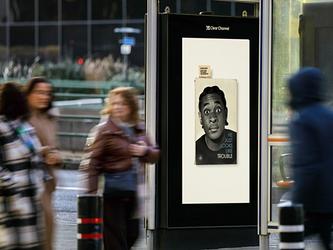Why is Black History Month so important?

Black History Month is held annually in the month of October in the UK to celebrate, share and recognise the contributions, impacts and achievements of people from African and Caribbean backgrounds. It provides a platform to acknowledge and promote the history, culture, and accomplishments of black people, as well as to highlight the ongoing struggle for racial equality and social justice.
Black History Month has grown in importance and recognition, with schools, universities, museums and cultural institutions taking part in recognising the important role that black people have played throughout British history and the many contributions made to society today.
At Walnut, we recently focused our lens on the general population in the UK to understand awareness of black history, views on education and how people perceive racial discrimination and inequality. We surveyed a sample of 2,011 nationally representative adults in the UK. To track views and perceptions over time, the questions match those asked in a 2020 version of the study – and while we will highlight this throughout, there were no notable differences in such perceptions over time.
Awareness is key, but racism and discrimination still exist in the UK: 87% of respondents believe that they are aware of the contributions of black and minority ethnic people throughout British history, which is relatively consistent from when we asked this question in 2020 ( 90%).
When looking at the extent of awareness, 14% report being ‘very’ aware overall, significantly more so among almost half ( 47%) of those who are black or black British, compared to other ethnic backgrounds surveyed. In light of higher recognition among black or black British respondents, more than two-fifths ( 42%) of this group also report being dissatisfied with the amount of black history learned in schools. More learning opportunities across this area could help increase recognition among other ethnic groups, where awareness is notably lower.
Overall, more than half ( 54%) of those surveyed believe that there is racism and discrimination against black people in the UK. 18-24s are the most likely age group to report this to the case ( 69%). Mixed ( 68%) or non-white ( 64%) ethnicities also tend to agree that racism and discrimination against black people exists in the UK. Conversely, older individuals aged 55-64 ( 22%) and those from white backgrounds ( 17%) tend to disagree with the statement that racism and discrimination still exists.
This highlights disparities between lived experiences versus the viewed perceptions of others, and indicates that more work could be done to recognise the racism and discrimination that is still felt in the UK today.
More allyship is needed to recognise the lived experiences of black people: Almost half ( 48%) of those surveyed from white backgrounds feel that their knowledge of black history is not strong. While it’s positive that more white respondents agree ( 36%) than disagree ( 28%) that they would like to learn more about black history, it really doesn’t compare to those from black or black British backgrounds that would like to learn even more than they know already ( 80%). Furthermore, more than four in 10 ( 43%) overall believe that there are equal opportunities for black and white people in the UK – those aged 35+ tending to agree, as well as those from white backgrounds ( 44%).
This again underpins the differences between lived experiences and perceived ones. More openness to understand and learn such lived experiences can help increase the much-needed allyship to address the previously uncovered extent to which racism and discrimination is still felt in the UK.
Young people are more susceptible to recognise inequalities and want to learn more about black history: While overall around half ( 51%) believe that people from different ethnic and cultural backgrounds living in their local area are well integrated, the survey also uncovers that generally the government could be doing more to tackle racism in the UK. Around a third ( 34%) report that the government is not doing enough, a finding significantly higher amongst 18-24s ( 48%).
Nearly a quarter ( 24%) of young people aged 18-24 also report being very aware of the contributions of black and minority ethnic people throughout black history – significantly higher than all older age groups surveyed. This may be down to the surge of social media platforms in terms of learning and sharing content among this age group.
Since the Black Lives Matter movement that followed the death of George Floyd in 2020, 34% of respondents agreed that they had learned more about black history – this figure remains consistent from our data gathered in 2020. What’s more, 18-24s are significantly more likely ( 57%) to agree, and more than six in 10 ( 65%) of the same age group would also like to continue to learn more about black history.
An ongoing journey towards greater equality: With the ‘Saluting Our Sisters’ and the #WEMATTER movement last month, as well as the Windrush 75-year anniversary of June 2023, the continued commitment to educating the public and fostering awareness of black history, experiences and culture is an essential step in the continuing struggle for racial equity and inclusion. While progress has been made with awareness and understanding – particularly among young people – the work to understand systemic issues and attain genuine equality is very much ongoing.
Shanice Omare is a research manager at Walnut and Katie Battersby is a senior research executive at Walnut

We hope you enjoyed this article.
Research Live is published by MRS.
The Market Research Society (MRS) exists to promote and protect the research sector, showcasing how research delivers impact for businesses and government.
Members of MRS enjoy many benefits including tailoured policy guidance, discounts on training and conferences, and access to member-only content.
For example, there's an archive of winning case studies from over a decade of MRS Awards.
Find out more about the benefits of joining MRS here.













0 Comments